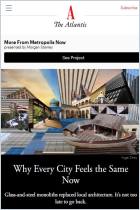Melden Sie sich bei getAbstract an, um die Zusammenfassung zu erhalten.

Melden Sie sich bei getAbstract an, um die Zusammenfassung zu erhalten.
Bel Jacobs
What Defines Cultural Appropriation?
BBC, 2022
Was ist drin?
The fashion industry must respect the cultures that inspire its designs.
Recommendation
The fashion industry draws inspiration from many spheres, including a wide variety of cultures. But what determines the line between inspiration and exploitation? In recent years, social media has accelerated cultural appropriation, landing some brands in hot water. As Bel Jacobs reports for the BBC, the industry must compensate and acknowledge artisans in “sacrifice zones” – places where various industries exploit marginalized people for economic gain , for instance, using their designs. Several organizations, including the Fashion Open Studio, Fashion Impact Fund and the Cultural Intellectual Property Rights Initiative, among others, seek to redress this imbalance with collaborations that benefit all contributors.
Summary
About the Author
Bel Jacobs, the coordinator of Extinction Rebellion Fashion Action, is the former style editor for Metro. A speaker and activist, she writes a blog at www.beljacobs.com.




















Comment on this summary